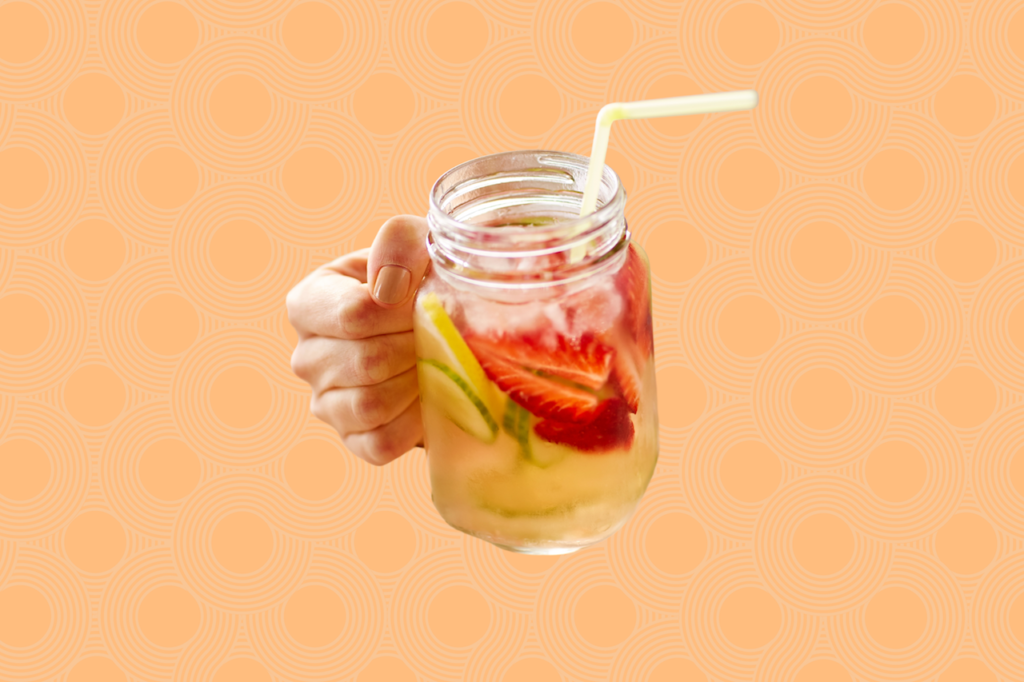
Ideal for those looking to enjoy the warmer months down under safely.
Those hazy, lazy, heady Australian Summer days. The time of year when we most want to be out, about and active. However, rather tempering the balmy weather’s excitement, it’s also a time when you are most likely to become dehydrated, and usually pretty rapidly so.
Dehydration occurs when someone loses more fluid than they have consumed. That loss of fluid is often accompanied by an imbalance in the body’s mineral salts or electrolyte levels. Should you be wondering if you’re suffering or simply a little thirsty and flustered, then common causes of dehydration include excessive urination, gastrointestinal water loss, and excessive water loss through sweating and breathing due to physical activity, fever, high heat or increased weather temperature during the summer season. Look out for these.
One of the ideal tips for adjusting to warm weather in a sustainable, healthy way is to increase your hydration levels. Taking in drinks with sufficient concentrations of mineral salts like sodium and potassium, especially, may prevent the symptoms of dehydration like headaches, nausea, or fatigue. This isn’t something to be taken lightly, particularly in the scorching heat of an Australian summer; severe dehydration can be fatal if not acted on immediately.
With that in mind, here’s how to prevent dehydration during Australia’s scorching summer season, IDEAL for those looking to enjoy the warmer months down under safely.
DRINK PLENTY OF FLUIDS
Drinking water and fluids with high levels of electrolytes provides hydration, moisture and energy needed for the proper functioning of the body. For instance, taking in fruit juices, mineralised water, and energising or electrolyte-filled drinks provides the normal level of mineral salts in the body for vital functions.
Electrolytes play an important role in preventing dehydration and keeping normal body function ticking along, building tissue and clotting blood, maintaining pH levels in the blood, contracting muscles, and transmitting communication signals from nerves to cells throughout the body.
Aside from water, you can hydrate yourself with delicious and healthy beverages like:
- Lemon Water: One of the most hydrating drinks since it’s thirst-quenching, lemon water is also a great way to get your daily dose of vitamin C. Drinking lemon water made from the juice of two lemons and a pinch of rock salt will keep you nicely hydrated.
- Coconut Water: Low in calories and contains high amounts of potassium, coconut water is a healthier alternative to packaged energy drinks.
- Cucumber Juice: Cucumber is about 90% water and is considered one of the most hydrating vegetables. Vegetable juices are better hydrating beverages than concentrated forms of fruit juices since they have more helpful minerals. If you’re particularly fond of fruit juices, it’s best to have orange juice since it contains a high intensity of electrolytes.
- Fruit Infused Water: These drinks are better for hydration than straight fruit juices. Adding seasonal fruits and berries in a glass of water dilutes the concentrated sugars and increases their hydrating powers.

AVOID OVER CONSUMPTION OF ALCOHOL AND CAFFEINE
Alcohol and caffeine tend to dehydrate you since these beverages have diuretic effects – meaning that they induce the need to urinate. Simply put, in the baking Australian sunshine, an ice-cold cocktail feels like a succinct, appropriate choice – good on the beach or in the park, equally – but in reality, it won’t be refreshing to the body. Overconsumption of alcohol and caffeinated drinks may lead to headaches and dehydration. Instead, it’s best to drink water and fluids rich in electrolytes to replenish the loss of mineral salts during summer.
EAT FRUITS AND GREEN VEGETABLES
Drinking water will hydrate you but eating foods with a high water content is also a key part of how we stay hydrated. There are various healthy foods that can be sources of water to your diet. These include fruits and vegetables that are low in calories, high in water content, and easy to digest. Some great examples are:
- Watermelon: A healthy food that contains around 92% water content and is totally delicious; what’s not to love?. A 1-cup serving of watermelon has more than a half cup of water plus has some fibre and essential nutrients like vitamin A, C, and magnesium. What’s more, it has low-calorie content at only 46 calories per cup.
- Strawberries: Eating strawberries can contribute to your water intake since they are 91% water. They also provides fibre, vitamins, minerals, and disease-fighting antioxidants.
- Lettuce: Offering essential nutrients and 96% water, lettuce isn’t simply the obligatory ‘green’ on your plate. This vegetable is high in vitamins A and K which are key in maintaining healthy bones and immune systems.

OPT FOR INDOOR ACTIVITIES
Though it might be stating the obvious, staying out of the sun during peak hours of the day is a prudent move if you’re concerned about dehydration. If you’re still keen on prioritising your fitness, instead opt for indoor workouts like walking on a treadmill or riding an indoor exercise bike to achieve your fitness goals. If you get hot, cool down in a swimming pool!
If possible, avoid stepping out during peak hours of sunlight, between 11 am and 3 pm, to prevent exposure of intense UV rays and high temperatures. Keep your surroundings cool by keeping the windows and curtains closed during peak hours of the day and turning on the air conditioning.
DRESS APPROPRIATELY
Choosing the right clothes is one of our top summer heat tips if you’re to keep dehydration at bay. Wearing tight, dark-coloured clothing tends to absorb the sun’s heat and won’t help in your body to evaporate sweat. All this leads to a vicious circle; of overheating, sweating and its subsequent discomfort, which only further exacerbates the overheating. And repeat.
Instead, wear light-coloured clothing and fabrics, such as linen or 100% cotton, to keep you cool and comfortable. When you’re outside, make sure to bring:
- Light-coloured clothes: It’s better to wear white linen on the beach during summer since white reflects heat from the surroundings and loose clothes provide comfort, helping you sweat and evaporate. It is our body’s natural cooling system do your best to support it.
- Sunglasses: Helping to protect your eyes and prevent ultraviolet (UV) rays from burning your corneas during summer, it’s best to use sunglasses that block the majority of the sun’s UV rays, rather than that knock off pair of Ray Bans which offers a false sense of security but actually very little protection.
- Sunscreen: Use sunscreen with a SPF rating of at least 15 to prevent nasty sunburn when outdoors. Apply the lotion to areas that burn easily like nose, ears, shoulders, face, and back of the neck especially.
THE BOTTOM LINE
Fluid loss that is greater than what is being consumed can lead to an imbalance in the body’s level of electrolytes and can cause health complications if not addressed immediately.
Indeed, the tips mentioned above may save you from dehydration. Drinking sufficient amounts of water and eating foods and vegetables rich in water, fibres, vitamins, and minerals are the best ways to keep healthy. Additionally, and if possible, avoid places or activities that will consume your energy and subject you to intense heat. If you take these simple precautions, you can enjoy all that a scorching Australian Summer has to offer!





